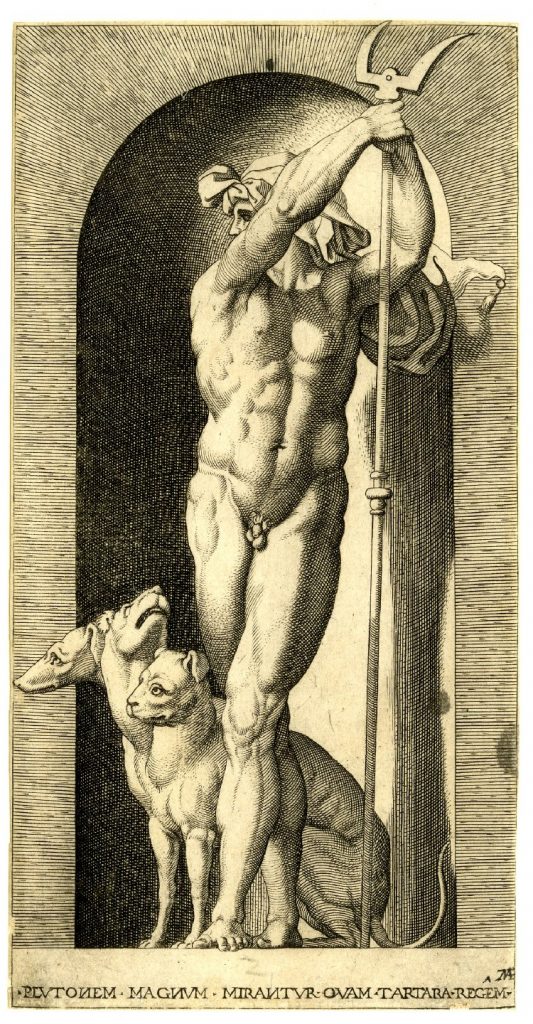More often than not, ancient Greek mythology (religion) served to explain a series of legends. Different from modern religions such as Christianity, Judaism, or Islam, ancient Greek religion was an anthropomorphic polytheism, meaning that ancient Greeks believed in a multitude of individual divine figures that took on human forms and emotions.1 Furthermore, ancient Greek mythology lacked much of the asceticism and mystical enthusiasm that is more commonly seen in modern religions. Most of the highly developed anthropomorphic and comparative rationalism of the ancient Greek religious thought can be accredited to Homer with the aid of his Iliad and Odyssey.2
The people of the ancient Greek civilization were often in a state of weakness under the power of nature; therefore, they relied heavily on the divine individuals of Olympus. Why? They believed that the forces of nature were under the control of their gods. In short, the relationship between humans and divine beings was that of a retribution justice.3 If humans did anything to offend the gods, then those gods would strike back in some sort of fashion to restore justice.4 Therefore, humans were constantly looking to please the gods in fear of their wrath.
Out of the ancient Greek mythology came the god of the dead and the underworld, Hades. Hades had five other siblings: Zeus, Poseidon, Demeter, Hera, and Hestia, and they were all children of Cronus and Rhea.5 After defeating their parents (the Titans), Hades drew lots with Zeus and Poseidon to gain their respective domains. Hades was commonly thought to be a cold god, but he was never considered to be an evil divine figure. Furthermore, it is important to note that his realm, the underworld, should not be associated with the hell of Christianity.6 However, Hades was for the most part feared by all. Another name for the ancient Greek god was Ploutos and later adopted by the Romans as Pluto.7

The god of the underworld was the husband of Persephone (Zeus’s and Demeter’s daughter). Although she was Hades’ wife, she only lived with him during the winter time.8 Persephone was the divine goddess of agriculture and fertility. Therefore, the ancient Greeks accredited the change in nature (winter) to Persephone moving to the underworld. Persephone was unable to stay with Hades at all times due to interference from her mother Demeter. Zeus, however, was okay with the marriage of Hades and Persephone. Therefore, in order to set up the marriage, Zeus had to trick Persephone, so she could be abducted by Hades.9 However, Demeter interfered, and that is why Persephone spends half of the year with Demeter and the other half with Hades.
Furthermore, it is important to note the Greek perspective of the afterlife. Perspectives about the afterlife varied from each other based on their region in Greece as well as their time period in Greek history. The consensus was that the underworld was neither heaven nor hell.10 The sense that exists within Christianity, for example, was not present during the time of the ancient Greeks. Although Tartarus was present as a location within the underworld, the Greeks would not compare it to the equivalent of Christian hell. The way the Greeks saw it, the underworld was a place that everyone ended up after death.11 However, there were a few, including the philosopher Epicurus, that believed that the underworld did not exist at all. He believed that when the body died, the soul died with the body as well.12 A good portion of Greeks refused to believe such a pessimistic perspective of the afterlife. However, even the Greek traditional perspective of the underworld was not as popular despite many Greeks believing in it.
- Funk & Wagnalls New World Encyclopedia, 2016 s.v., “Greek Religion and Mythology.” ↵
- Funk & Wagnalls New World Encyclopedia, 2016 s.v., “Greek Religion and Mythology.” ↵
- Funk & Wagnalls New World Encyclopedia, 2016 s.v., “Greek Religion and Mythology.” ↵
- Funk & Wagnalls New World Encyclopedia, 2016 s.v., “Greek Religion and Mythology.” ↵
- Salem Press Encyclopedia, January, 2015, “Hades (deity),” by Joseph, Michael, DMin. ↵
- Salem Press Encyclopedia, January, 2015, “Hades (deity),” by Joseph, Michael, DMin. ↵
- Salem Press Encyclopedia, January, 2015, “Hades (deity),” by Joseph, Michael, DMin. ↵
- Salem Press Encyclopedia, January, 2015, “Hades (deity),” by Joseph, Michael, DMin. ↵
- Salem Press Encyclopedia, January, 2015, “Hades (deity),” by Joseph, Michael, DMin. ↵
- The Greenhaven Encyclopedia of Ancient Greece, 2007, s.v. “Underworld,” by Robert B. Kebric. ↵
- The Greenhaven Encyclopedia of Ancient Greece, 2007, s.v. “Underworld,” by Robert B. Kebric. ↵
- The Greenhaven Encyclopedia of Ancient Greece, 2007, s.v. “Underworld,” by Robert B. Kebric. ↵



186 comments
Tala Owens
This was very insightful. You can’t help but compare Hades to what we know as the Devil but it is good to be informed that that’s not the case. The Greeks didn’t see Hades as someone to make sure you never think of but rather everyone would end up in his kingdom in their after life. I had no idea about this until I read this article.
Christopher Hohman
Nice article. Hades is much different than our idea of the devil today. Even though he was ruler of the underworld. He was still a feared figure in much of ancient Greek society because he was associated with the underworld. It is interesting that the ancient Greeks had such a strange relationship with their gods. Divine retribution is quite a scary thing, it is no wonder that the ancient Greeks constantly sought to appease their gods and goddesses
Yazmin Garza
I have been studying Greek mythology since I was 8 years old, and Hades has always been one of my favorite gods. Out of the original five gods that descended from Cronos and Rhea, Hades always struck me as the most mature and responsible. He never really caused any trouble he did his job of ruling the underworld (not an easy or nice job) without much fuss. I always felt that people misinterpreted Hades role in Greek mythology as a villain, but Hades was actually was one of the few gods that existed somewhat peacefully.
Michael Leary
Very interesting article about Greek Mythology. It gives an insight to how people in ancient times thought and how they rationalized nature and the unknown by making a god or deity in charge of each one. I found it interesting how the underworld sounds bad from a Christian point of view, but, it was just their thought on after life.
Claudia Sanchez
That last sentence made no sense to me… how can something not be popular despite a lot of greeks believing in it? If a lot of the people believe in it then that means it is popular. Besides that, I liked the article because it has a really interesting topic that I think a lot of people are interested in.
Chelsea Alvarez
Greek mythology has always interested me, because of the various stories that are associated with it. The idea of humans being closer to nature for the sake of pleasing the Gods is fascinating. I liked how it was clearly addressed that the Underworld has nothing to do with what Christianity describes as hell. Overall, the way that the afterlife was discussed in the concluding paragraph really helped in knowing that the underworld was not heaven or hell, much like purgatory in the Christian faith.
Antonio Coffee
This article was very interesting to me. I have always loved Greek mythology and it was great to see Hades’ most important moments displayed this way. It was also interesting to see the contrast between Christian Hell and the Underworld as I had never considered comparing them to each other before. This article really shone by not only showing the theology but showing how the stories related to the Greek’s understanding of the world.
Dalton Moy
I had already known that Hades’ realm, the Underworld, was not considered Hell, as Christians would think. Rather, the Greek’s equivalent to “Hell” would be not being allowed to cross the river into the Underworld, but being trapped between the realms. I had not heard of the fact that Zeus set up the marriage between Persephone and Hades. I would have thought that Zeus would have been against it. This was a very interesting read.
Alexandra Lopez
This article was very informative about the topic of not only on Hades but the roles of those who prayed to the Greek Gods as well. I did not know Hades was not evil or the underworld is not in comparison with the Christianity version of hell. Reading this article corrected my past insertions on this topic and it was well written by the author. (reposted)
Lilliana Canales
I was unaware that Hera, Demeter and Hestia were sisters of Hades, I only knew Hera as Zeus’ wife and Demeter as Persephone’s mother. I think it’s very important that you pointed out several times not to confuse the Greek underworld with Christian hell because I’ve heard a lot of people do just that. I enjoyd this article and now know that Persephone is both Hades wife and niece.